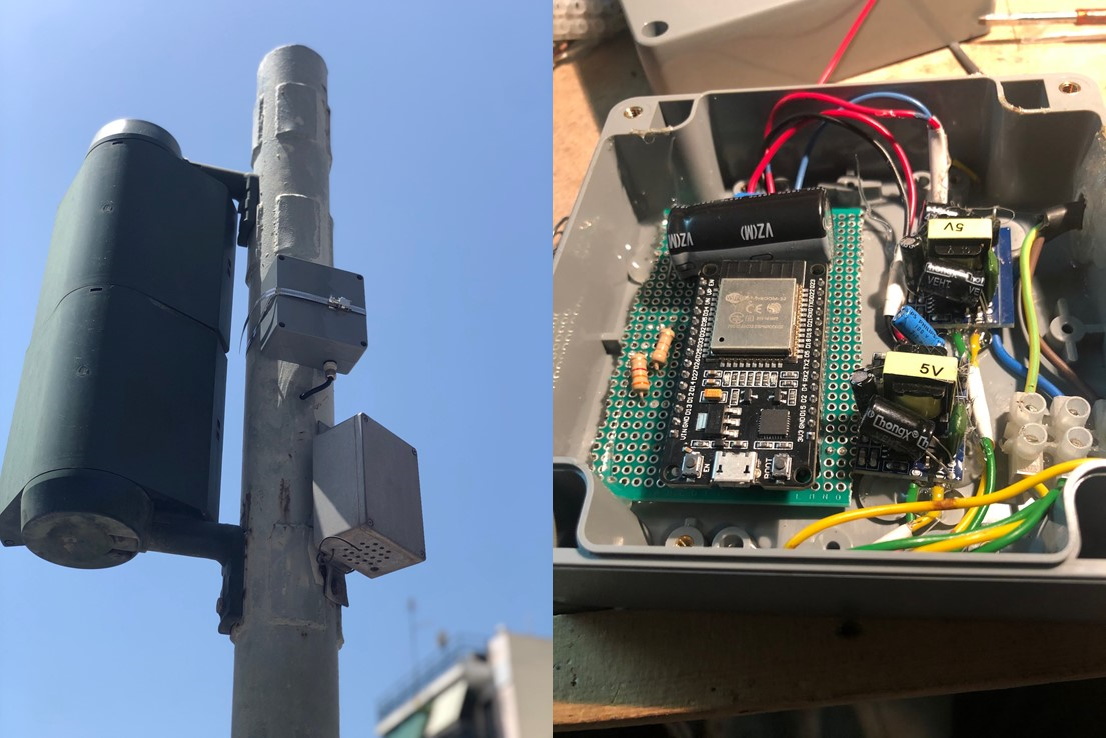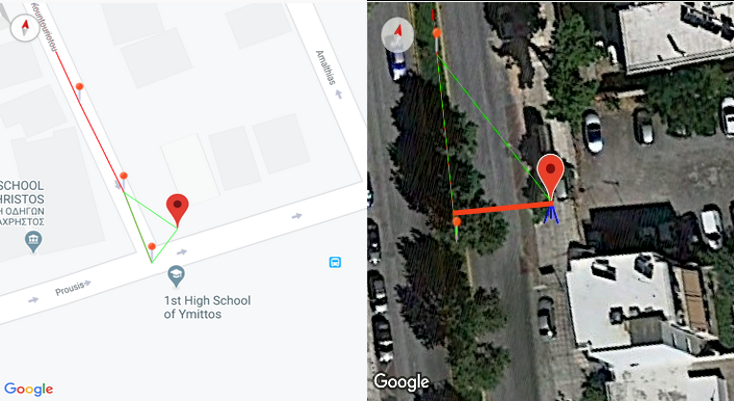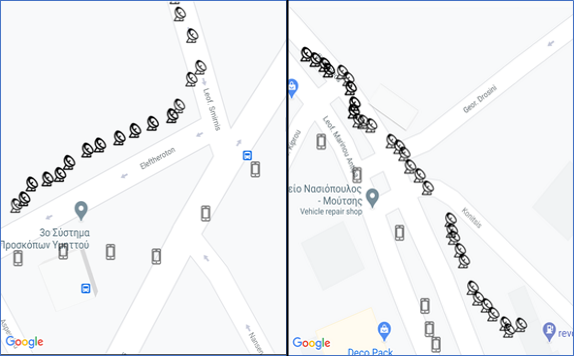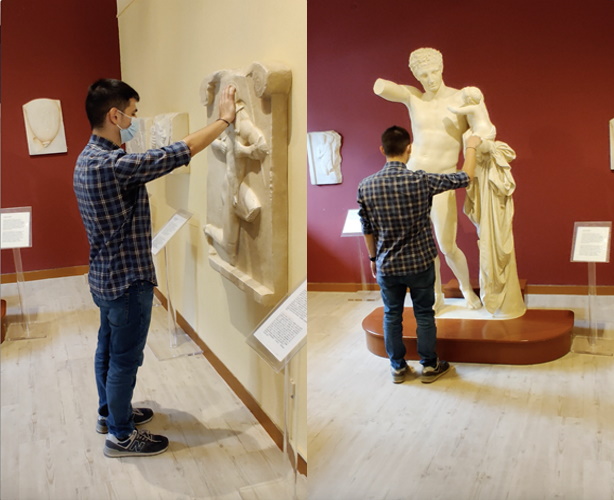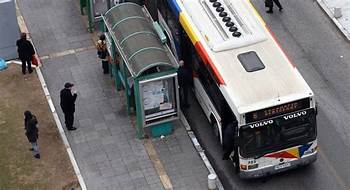The MANTO RTD project aimed at the development and validation of two state-of-the-art navigation applications for blinds and visually impaired. The first application (Blind RouteVision) addresses the autonomous safe pedestrian outdoor navigation of blinds and visually impaired. Building upon very precise positioning, it aims to provide an accessibility, independent living, digital escort and safe walking aid for blinds. The application operates on smartphones exploiting Google Maps to implement a voice guided navigation service. The smartphone application is supported by an external embedded device integrating a microcontroller, a high precision GPS receiver, as well as a servo-motorized sonar sensor for real-time recognition and by-passing of obstacles along the route of the blind person.
Additional application features include voice selected route destinations and supported functions, synchronization with traffic lights, exploitation of dynamic telematics information regarding public transportation timetables and bus stops for building composite routes which may include public transportation segments in addition to pedestrian segments, dialing and answering phone calls, emergency notification of carers about the current position of the blind person, weather information to help dress appropriately etc. Furthermore, an innovative and challenging application component has been developed to provide real-time visual information to the blind person along the route exploiting machine- and deep-learning technology. The already developed application goes beyond the current state-of-the-art regarding blind navigation demonstrating unparalleled functionality and setting a precedent for its competitors, enhancing independent living of blinds in Greece and all over the world.
The second application (Blind MuseumTourer) enables blind and visually impaired persons to experience autonomous self-guided tours and navigation in Museums and other complex public and private indoor spaces. Based on the outcome of the particular use case, the application will evolve long-term to an indoor blind navigation system for complex public and private buildings, such as hospitals, shopping malls, universities, public service buildings etc. The application executes on smartphones and tablets implementing a voice- instructed self-guided navigation service inside Museum exhibition halls and ancillary spaces. It comprises an accurate indoor positioning system using the smartphone accelerometer and gyroscope and optional proximity sensors fit in the indoor space. The Blind MuseumTourer application has been deployed in the Tactual Museum of the Lighthouse for the Blind of Greece, one of the 5 tactual museums worldwide, in order to implement a brand new “best practice” regarding cultural voice-guided tours targeting blind and visually impaired visitors. A key objective of the project is to render museums completely accessible to blinds and visually impaired using the proposed technology and implement a success story which can eventually be sustainably replicated to all Greek Museums and other large and complex public and private indoor spaces using accessible acoustic and tactual routes. It is noted that several public and private organisations have expressed officially their strong interest (via Letter of Intent) to evaluate the developed application.
The proposed applications aim to resolve accessibility problems of blinds and visually impaired during pedestrian transportation and navigation in outdoor and indoor spaces. Independent living has a key contribution to social and professional inclusion, education and cultural edification and quality of life of blinds and visually impaired. The project aims to provide an unparalleled aid to blinds all over the world so that they can walk outdoors safely and experience self-guided tours and navigation in Museums and complex indoor spaces. In parallel, it also aims to enable and train cultural and other interested organizations to host and be accessible to people with such disabilities. The project outcomes will contribute decisively towards breaking social exclusion and address blind people at all ages.
The MANTO RTD project (“Innovative Blind Escort Applications for Autonomous Navigation Outdoor and in Museums”) was funded by the national EPAnEK 2014-2020 Operational Programme Competitiveness-Entrepreneurship-Innovation under contract No. 593 and was implemented by the University of Piraeus Research Centre with the collaboration of the Lighthouse for the Blind of Greece and IRIDA Labs S.A.
(* In Ancient Greek Mythology, Manto was a daughter and blind escort of famous blind seer Tiresias)




